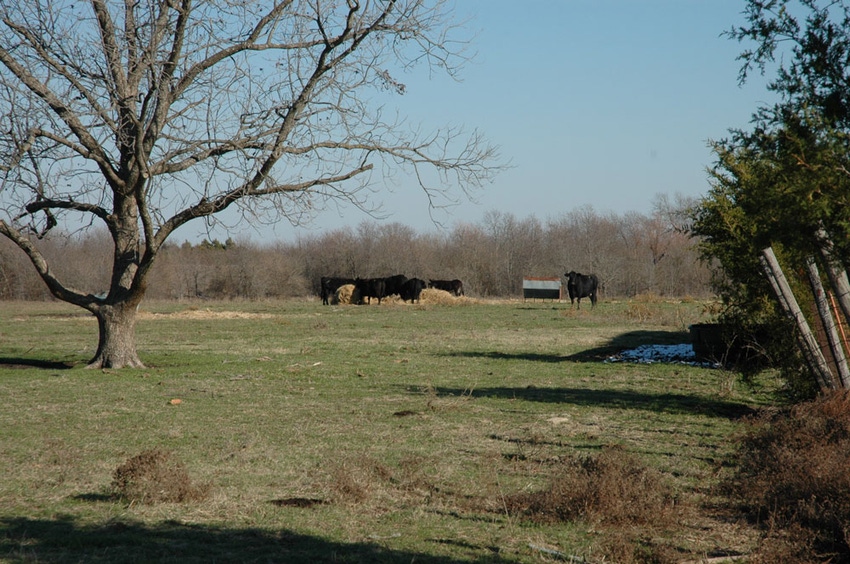November 5, 2013

Livestock producers should buy with care and use common sense to make certain they get the best value from animal health products says an Oklahoma State University Extension veterinarian.
Livestock pharmacy costs are higher than ever, so producers need to use their best management skills to ensure they get their money's worth, said Dave Sparks, OSU Extension area extension veterinarian.
"Cattlemen utilize the best feed they can find for their cattle and they should do the same when buying and storing the materials they use for animal health, Sparks said.
High-priced feed won't contribute to cattle profits if it is left in the barn. The same is true when buying and storing herd health products.
"Herd health programs are like insurance," Sparks said. "Every producer needs one, but all producers don't have the same coverage. Make your local veterinarian your partner in designing a health program tailored to fit your needs. You can't afford to be without the protection you need, but you also can't afford to pay for protection you don't need."
Producers tend to keep vaccines and other health products too long, he said. When products go out of date, throw them away, because their effectiveness can vary greatly on many different conditions. Buy products with a long shelf life and only enough to cover what you expect to use by a certain date.
If you are enjoying reading this article, please check out Southwest Farm Press Daily and receive the latest news right to your inbox.
"Many biological products come with two portions to be mixed before use," he said. "Never mix more than you can use in 30 minutes for maximum immunological response in the livestock you are (treating). After being mixed, the mixture gradually loses effectiveness." Sparks suggests keeping vaccines in an ice chest with frozen cold packs when livestock are being worked. This will keep them cool in the summer and keep them from freezing in cold weather.
He recommends a refrigerator thermometer to ensure biological products are kept at the right temperature in a refrigerator.
"Most refrigerators keep these materials too warm or, even worse, too cold and freeze the products," he said. "It is important to keep these materials at the correct temperature listed on the product's package. If your vaccine supplier doesn't have a refrigerator thermometer in his refrigerator, ask him to get one."
Animals respond differently when given vaccines and other medicine. Always let recently hauled or shipped cattle rest for several days before vaccinating and handle cattle quietly to minimize stress because stressed animals are limited in their ability to respond to treatment.
Poor, thin animals should be built up before receiving vaccines. Animals not receiving the right amount of protein, copper and zinc in their diets cannot respond well to treatment, he said. Animals convalescing from other health problems are not able to respond well to vaccinations.
"Stockmen say you can't starve a profit out of livestock," Sparks said. "Livestock should receive proper health care as well as the proper kind and amount of feed."
Other intresting articles from Southwest Farm Press:
K-State studies show benefits of early calf weaning
Cowgirl legacy lives in New Mexico
Cattle herd begins rebuilding
About the Author(s)
You May Also Like




